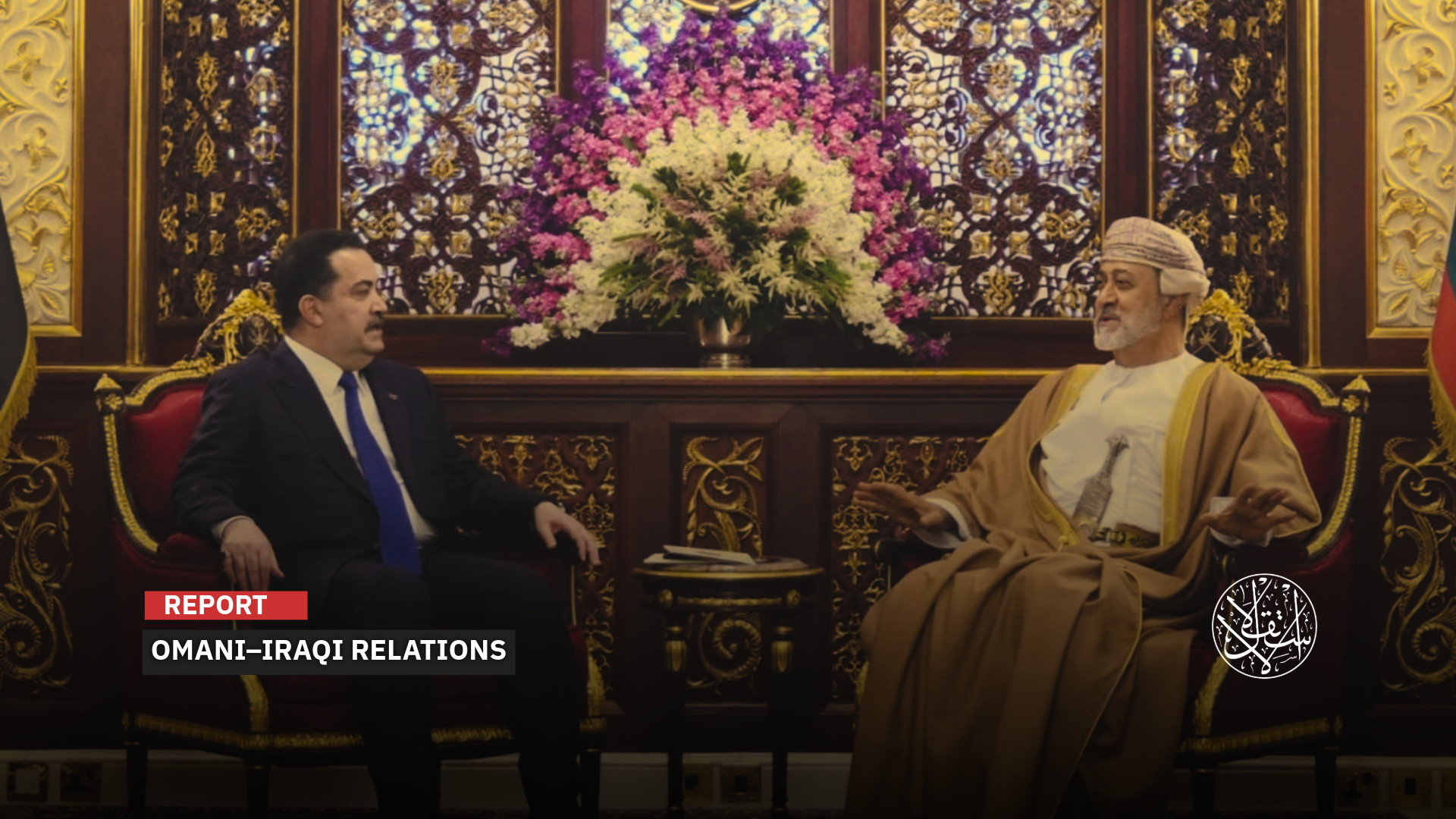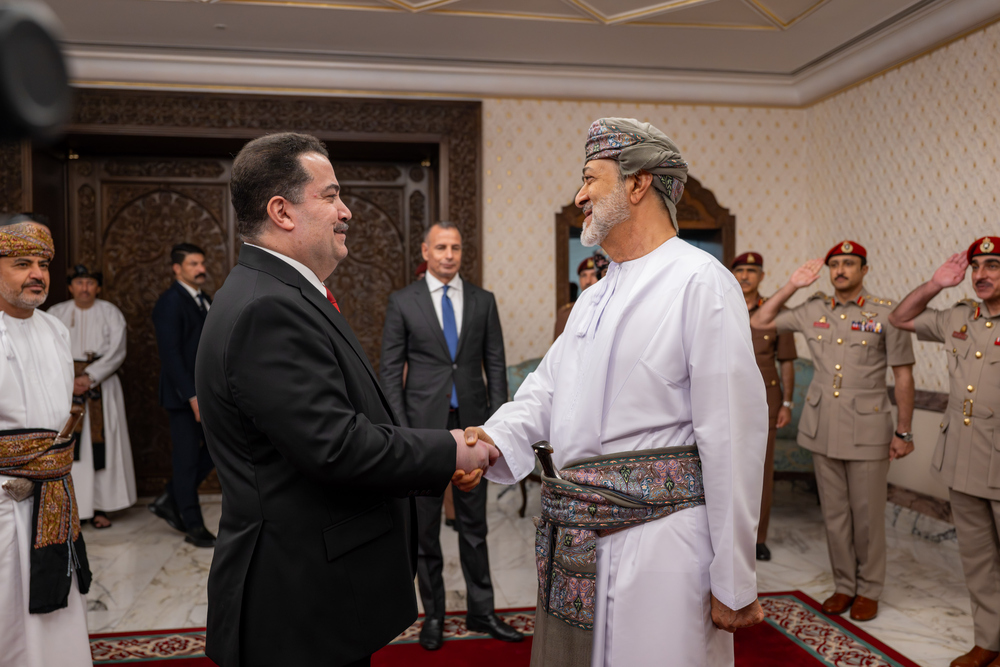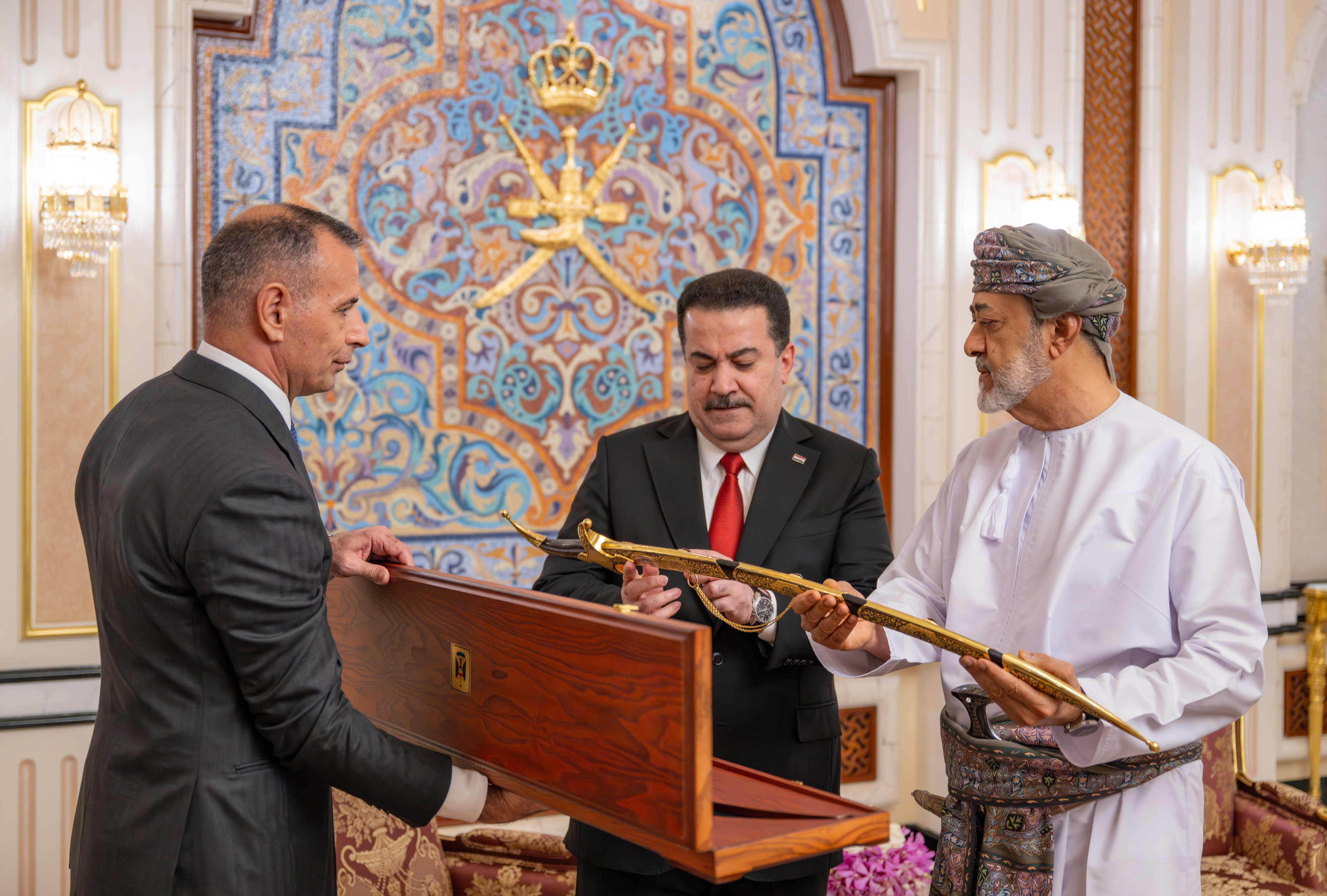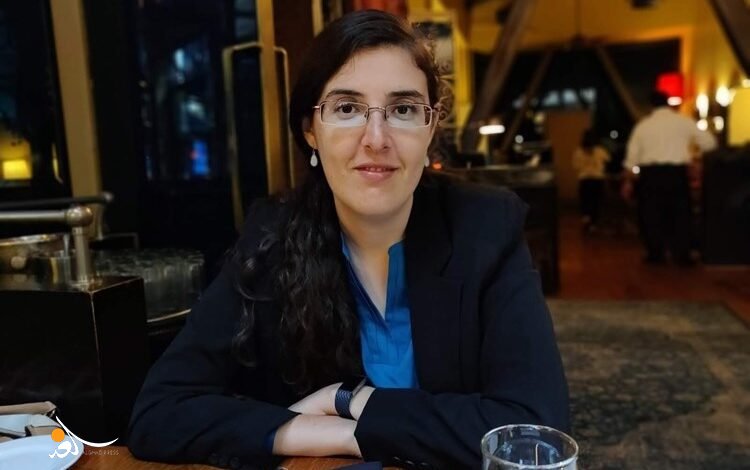Amid Talk of Possible Israeli Attacks, Why Did al-Sudani Travel to Oman?

Al-Sudani’s rivals claim his visit to Oman was aimed at seeking its mediation with the United States.
For the first time since taking office in 2022, Iraqi Prime Minister Mohammed Shia’ al-Sudani’s visit to Oman has raised eyebrows, coming just as speculation mounts over possible Israeli Occupation attacks on Iraq and war on Iran.
Official statements framed the trip as a push to deepen ties and support regional calm, but Iraqi media and analysts see it differently, pointing to the timing and the volatile conditions facing Iraq and the wider region.

Ending the Conflict
During his two-day visit to Oman on September 3, 2025, Iraqi Prime Minister Mohammed Shia’ al-Sudani, leading a ministerial delegation, met with Sultan Haitham bin Tariq. The two oversaw the signing of two agreements and 24 memoranda of understanding, most notably in energy and oil, according to an official Iraqi statement.
During his meeting with the Sultan, al-Sudani emphasized Iraq’s wish to deepen ties with Oman, highlighting the Iraqi people’s appreciation for Oman’s steadfast support through the country’s many trials and regional challenges.
A broader meeting was held with both delegations to discuss regional developments, where al-Sudani praised Oman’s stance in calling for an end to the Israeli aggression on Gaza, promoting stability, and preventing escalation. He later held a one-on-one meeting with Sultan Haitham.
For his part, Sultan Haitham reaffirmed Oman’s commitment to advancing bilateral relations across all fields and its openness to productive exchanges with Iraq. He instructed Omani ministers to turn the memoranda of understanding into concrete steps through cooperation and partnership. The Sultan also voiced support for Iraq’s regional efforts, particularly those aimed at halting the spread of conflict and consolidating stability.
In a joint statement published by Oman’s Foreign Ministry on September 4, both sides called for an immediate and permanent end to the Israeli war on the people of Gaza, the swift delivery of humanitarian aid to the Strip, and outright rejection of any plans for forced displacement, land grabs, or continued aggression in the region. They stressed the need to end the illegal Israeli occupation and establish an independent Palestinian state with al-Quds (Occupied Jerusalem) as its capital.
On the issue of Arab solidarity, both countries highlighted the importance of coordination in regional and international forums to serve their interests, strengthen joint Arab action, and bolster regional and global peace and security.
They also emphasized support for peaceful approaches, dialogue, and diplomatic solutions, grounded in international law, respect for sovereignty, good neighborliness, and values of understanding and cooperation.
Al-Sudani’s visit followed an official invitation he received on December 21, 2024, from Sultan Haitham, delivered in Baghdad by Omani Foreign Minister Badr al-Busaidi.

Seeking Mediation
Commenting on the timing of al-Sudani’s visit to Muscat, Iraqi affairs researcher Bahauddin Barzanji said it was aimed at playing a mediating role between Iran and the United States, with Oman’s involvement, given Muscat’s well-known history in such regional efforts.
“Iraq wants to help pave the way for Iran to sit at the negotiating table, perhaps under a neutral Gulf guarantee, since Baghdad itself is not currently in a position to act as mediator under the Trump administration. Instead, it is pushing for Oman to take that role,” he told Al-Estiklal.
“Iraq is unsuitable as a mediator at present because of strained ties with Washington, highlighted by the absence of a U.S. ambassador since Trump’s second term began in January 2024, with only chargés d’affaires sent twice, and the lack of any meeting between al-Sudani and the U.S. president to date.”
“Al-Sudani’s trip to Muscat might also be linked to heading off a potential Israeli strike on Iraq targeting pro-Iran militias, possibly in conjunction with any attack on Iran,” Barzanji added.
Talk of Israeli Occupation strikes on Iraqi territory has been circulating for some time. On August 25, 2025, Israel’s Kan channel reported that “Iraq has begun field preparations for possible Israeli attacks targeting pro-Iran armed factions.”
It added that the unexpected drawdown of U.S. forces without prior notice to Baghdad, including the transfer of heavy equipment from Ain al-Asad base in western Iraq to other sites, unsettled Iraqi political forces and prompted factions to brace for direct Israeli aggression.
According to the Hebrew channel, pro-Iran Iraqi factions had launched attacks on “Israel” several times since its genocide in Gaza began in October 2023. Yet Tel Aviv refrained from striking them, unlike in other arenas, due to the deterrent effect of the U.S. presence in Iraq.
Iraqi political analyst A’id al-Hilali said al-Sudani’s visit to Muscat carries broader dimensions than bilateral cooperation, touching on regional political and security issues of major importance, and could mark the start of a new path toward balance and stability in the region.
In an interview with Iraq’s Salahaddin TV on September 3, al-Hilali, a close associate of al-Sudani, pointed out that Oman’s long-standing reputation for neutrality and dialogue gives this visit significance beyond mere protocol.
He added that the region’s current tensions, whether regional escalation or internal divisions, demand mediation and coordinated positions, and Iraq seeks to strengthen such efforts by drawing on Oman’s trusted experience.
According to the analyst, Iraq has for some time sought to position itself as a bridge among regional rivals and sees Oman as a reliable partner to achieve this goal. He suggested the talks likely covered broader regional issues, including Yemen and indirect negotiations between conflicting parties.
Iraq’s Alssaa news network reported that al-Sudani’s visit to Oman was part of a diplomatic push to cement Iraq’s role as mediator between the U.S. and Iran, amid rising tensions and fears of a direct confrontation between Tehran and the Israeli Occupation.
The outlet added that the trip built on recent outreach by al-Sudani to international leaders, including French President Emmanuel Macron, and that it carried dimensions beyond bilateral ties with Muscat, potentially laying the groundwork for a regional de-escalation initiative hosted by Oman with U.S., Iranian, and Iraqi participation.

Reaching Out to Israeli Occupation
On September 3, political analyst and former spokesperson for the Iraqi government Rafid Jaboori said al-Sudani’s rivals claim his visit to Oman was aimed at seeking U.S. mediation.
“It’s true that al-Sudani’s ties with the Trump administration are strained, but the idea of Omani mediation seems odd. Perhaps what he really wants is mediation with Israel to avoid a surprise that could upend the Iraqi scene,” he posted on X.
Washington-based political analyst Nizar Haidar said al-Sudani’s visit to Oman was aimed at “opening a relationship” with “Israel,” tied to the case of Israeli national Elizabeth Tsurkov, abducted by the Iraqi militia Kata’ib Hezbollah in 2023.
In a September 3 television interview, Haidar claimed al-Sudani had reached an understanding with Kata’ib Hezbollah regarding Tsurkov before traveling to Muscat, and that the Iraqi prime minister would pay the group a sum of money in exchange for her release.
He noted that if handing over Tsurkov to “Israel” through Oman could pave al-Sudani’s way to Washington, then taking such a step would be “entirely natural.”
Haidar added that the United States had set conditions for al-Sudani, including blocking the Popular Mobilization Forces law in parliament, legislation that the Shiite Coordination Framework withdrew from sessions in late August 2025.
According to him, al-Sudani is racing against time to meet Washington’s demands, and if he succeeds, a historic handshake with U.S. President Donald Trump could take place at the UN General Assembly set to open on September 9.
The abduction of Israeli national Elizabeth Tsurkov only came to light after Israeli Occupation Prime Minister Benjamin Netanyahu’s office issued a statement on July 5, 2023, confirming that the woman he described as a “researcher” had been kidnapped months earlier by the Iraqi militia Kataib Hezbollah and was now being held “hostage.”
The statement revealed that Tsurkov is an Israeli-Russian citizen, still alive, and that Iraq bears responsibility for her safety. It added that she had traveled there on her Russian passport to pursue doctoral studies and academic research on behalf of Princeton University in the United States.
The following day, Iraqi government spokesperson Bassem al-Awadi commented in a televised interview, saying authorities had opened an investigation into the “abduction of the Israeli-Russian researcher” inside Iraq.
Sources
- Through al-Sudani’s Visit to Muscat, Iraq Seeks to Cement Its Role as Mediator Between Washington and Tehran [Arabic]
- Al-Hilali: Muscat’s Neutral Diplomacy Supports Iraq’s Current Agenda [Arabic]
- Is al-Sudani Turning to Muscat to Gain Access to the White House? [Arabic]
- Iraq Signs Two Agreements and 24 Memoranda of Understanding with Oman [Arabic]
- Joint Omani-Iraqi Statement on the Visit of the Iraqi Prime Minister to Oman [Arabic]
- Prime Minister Mohammed Shia' al-Sudani and the Sultan of Oman Discuss Ways to Strengthen Bilateral Relations [Arabic]
- U.S. Early Withdrawal from Iraq: A New Attack on Baghdad or Tehran?












